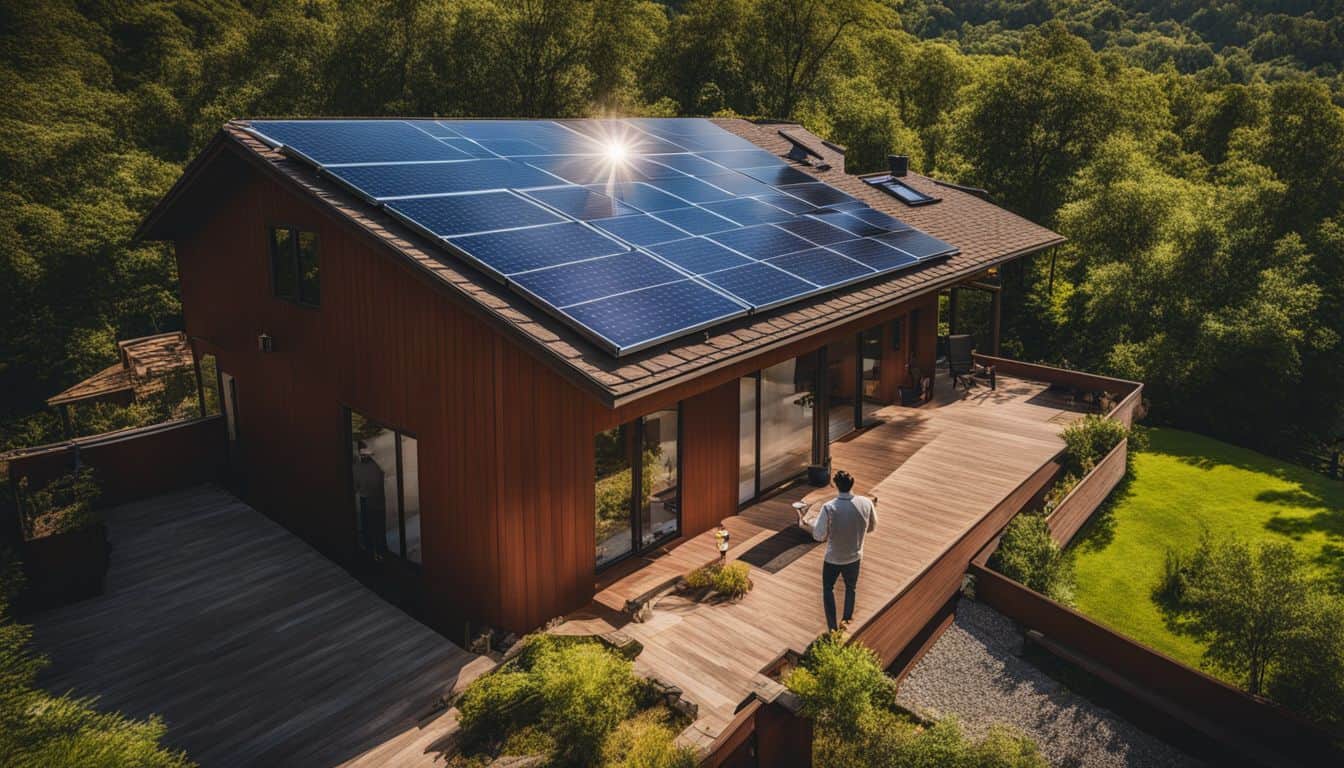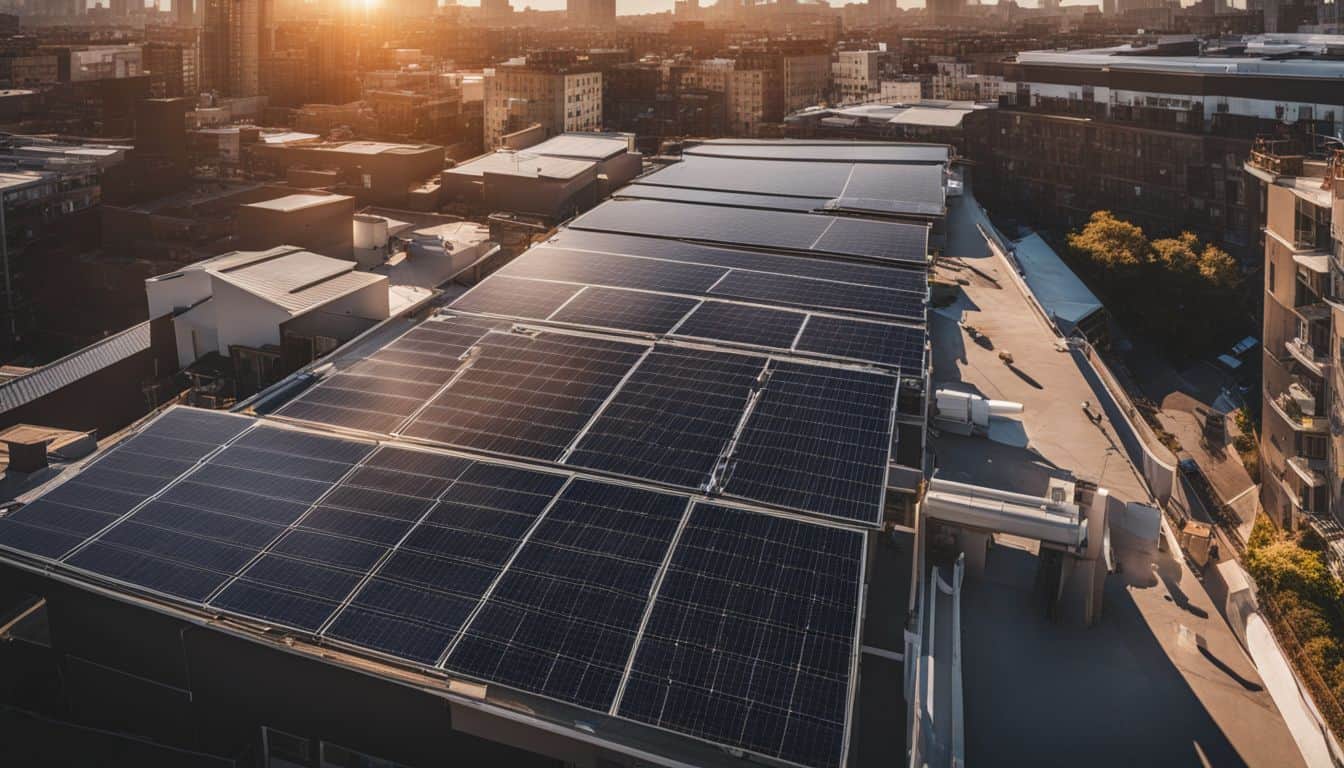As the world shifts towards sustainable energy solutions, solar heating panels have emerged as a popular choice for homeowners looking to reduce their carbon footprint and energy costs. Beyond the environmental benefits, these systems offer significant economic advantages that make them an attractive investment for residential properties.
Cost Savings on Energy Bills
One of the most immediate and tangible benefits of installing solar heating panels is the reduction in energy bills. By harnessing the sun’s energy to heat water or provide space heating, homeowners can significantly decrease their reliance on grid electricity or fossil fuels. The extent of these savings can vary based on factors such as location, energy consumption patterns, and system size, but many homeowners report substantial reductions in their monthly utility costs.
In sunny regions, solar heating panels can provide up to 80% of a household’s hot water needs, translating to significant savings over time. Even in less sunny areas, the long-term savings potential remains attractive. As energy prices continue to rise, the value of these savings is likely to increase, making solar heating an even more economically sound decision.
Increased Home Value
Installing solar heating panels is not just about immediate savings; it’s an investment in your property’s value. Studies have shown that homes equipped with solar energy systems, including heating panels, tend to sell at a premium compared to non-solar homes. According to recent research, solar installations can increase a home’s value by an average of 4.1%, with some markets seeing even higher premiums.
For more detailed information on how solar heating panels can affect your property’s value, check out our article on how solar heating panels impact property values.
Tax Incentives and Rebates
The economic appeal of solar heating panels is further enhanced by various tax incentives and rebates available to homeowners. In the United States, the federal solar tax credit allows homeowners to deduct a percentage of their solar installation costs from their federal taxes. As of 2023, this credit stands at 30% of the installation cost, with no upper limit.
Many states and local governments offer additional incentives, such as property tax exemptions for the added value of solar installations or performance-based incentives that pay homeowners for the energy their system produces. Utility companies may also provide rebates or performance-based incentives, further reducing the overall cost of installation.
Return on Investment (ROI)
When considering the economic benefits of solar heating panels, it’s essential to look at the return on investment. While the initial installation costs can be significant, the long-term financial benefits often outweigh this upfront expense. The payback period – the time it takes for energy savings to equal the initial investment – varies depending on factors such as installation costs, energy prices, and available incentives. However, many homeowners find that their systems pay for themselves within 5-10 years.
Compared to other home improvements, solar heating panels often provide a more substantial and predictable return on investment. Unlike aesthetic upgrades that may or may not appeal to future buyers, solar installations offer tangible, ongoing benefits that are increasingly valued in the real estate market.
Energy Independence and Price Stability
Solar heating panels provide a degree of energy independence that can be economically advantageous. By generating their own heat, homeowners become less vulnerable to rising utility rates and potential energy price spikes. This price stability can be particularly beneficial in regions where energy costs are volatile or consistently high.
Moreover, in some areas, homeowners with solar systems can participate in net metering programs, selling excess energy back to the grid. While this is more common with photovoltaic systems, some solar thermal systems can also contribute to overall energy production, potentially creating an additional revenue stream.
Low Maintenance Costs
The economic benefits of solar heating panels extend beyond energy savings and increased home value. These systems are known for their durability and low maintenance requirements. Most solar panels come with warranties of 20-25 years, and many continue to function efficiently well beyond this period. The lack of moving parts in most solar heating systems means there’s little that can wear out or break down, resulting in minimal ongoing expenses.
Regular maintenance is generally limited to occasional cleaning and system checks, which can often be performed by the homeowner. This low-maintenance nature contributes to the overall cost-effectiveness of solar heating systems over their lifetime.

Job Creation and Economic Growth
While not a direct economic benefit to individual homeowners, it’s worth noting that the growing solar industry contributes to job creation and economic growth. By choosing solar heating panels, homeowners indirectly support local jobs in installation, maintenance, and manufacturing. This broader economic impact can lead to more vibrant local economies and potentially increased property values in areas with strong solar adoption.
Challenges and Considerations
While the economic benefits of solar heating panels are significant, it’s important for homeowners to consider potential challenges. The initial installation costs can be substantial, although they are often offset by long-term savings and incentives. Climate factors and roof suitability can affect system performance and, consequently, the economic returns. It’s crucial for homeowners to conduct a thorough assessment of their specific situation before investing in solar heating panels.
For those looking to maximize the benefits of their solar heating system, our guide on mastering solar heating panels for homeowners offers valuable insights and tips.
Conclusion
The economic benefits of solar heating panels for homeowners are multifaceted and compelling. From immediate energy cost savings to long-term increases in property value, these systems offer a range of financial advantages. When combined with available tax incentives and rebates, the case for solar heating becomes even stronger. While individual circumstances vary, for many homeowners, solar heating panels represent not just an environmentally conscious choice, but a sound economic investment in their property and future financial stability.
FAQS
How much money can homeowners save by installing solar heating panels?
Solar heating panels offer significant financial savings for homeowners:
- They can reduce or even eliminate monthly electricity bills
- Most systems pay for themselves within 6 to 10 years through energy savings
- Homeowners can sell excess solar power back to the grid for additional income
- Solar panels can increase a home’s resale value by thousands of dollars
What is net metering and how does it benefit solar panel owners?
Net metering is a system that allows homeowners to sell their excess solar energy back to the power grid:
- When solar panels produce more electricity than a home uses, the surplus is sent to the grid
- The homeowner receives credits on their utility bill for this excess energy
- These credits can offset the cost of electricity drawn from the grid when solar production is low
- Net metering helps solar panel owners maximize their energy savings and earn a return on investment
How do solar heating panels increase property values?
Installing solar heating panels can significantly boost a home’s resale value:
- Homes with solar panels often sell for a premium compared to similar non-solar properties
- Buyers are attracted to the energy savings and environmental benefits of solar
- A study by Zillow found that solar panels can increase home values by 4.1% on average
- The added value can exceed the initial cost of installing the solar panel system
How does investing in residential solar panels benefit the economy?
The growth of residential solar adoption has far-reaching economic benefits:
- Installing solar panels creates jobs in manufacturing, sales, installation, and maintenance
- The solar industry employed over 230,000 people in the U.S. in 2020
- Increased demand for solar panels drives innovation and supports local businesses
- As more homes go solar, the overall economy benefits from reduced energy costs and increased spending
Do solar heating panels work well in locations that aren’t always sunny?
Solar heating panels can be effective even in regions with less consistent sunshine:
- While sunny locations optimize solar energy production, panels still work on cloudy or cool days
- Modern solar panels are designed to capture scattered and indirect sunlight efficiently
- Germany, a leader in solar adoption, receives less sunlight than most of the U.S.
- Advancements in solar technology continue to improve performance in various climates
What financing options are available for homeowners installing solar panels?
There are several ways for homeowners to finance a solar panel installation:
- Paying upfront with cash or a home equity loan offers the greatest long-term savings
- Solar loans allow homeowners to pay off the panels over time while still benefiting from energy savings
- Leasing options and Power Purchase Agreements (PPAs) enable homeowners to access solar with little to no upfront cost
- Government incentives, tax credits, and rebates can significantly reduce the overall expense of going solar
How can I determine if solar heating panels are a good investment for my home?
To assess whether solar heating panels are a worthwhile investment, consider the following:
- Evaluate your current energy bills and potential savings based on your location and energy usage
- Obtain quotes from reputable solar installers to determine the cost of a system sized for your needs
- Factor in available incentives, tax credits, and financing options to calculate your net cost
- Consider your home’s solar potential based on roof orientation, shading, and local climate
- Weigh the long-term financial benefits against the upfront cost to determine if solar aligns with your goals











Leave a Reply